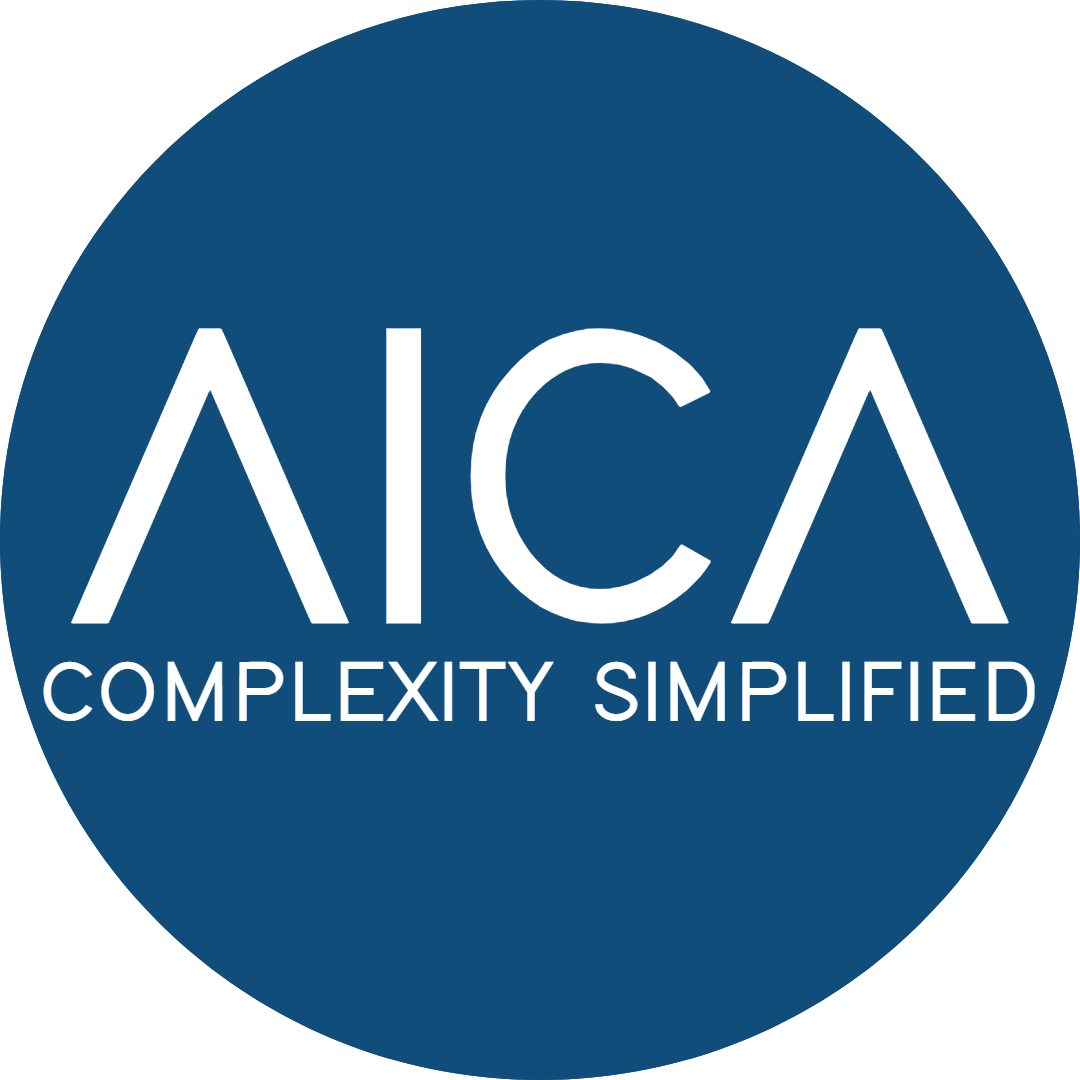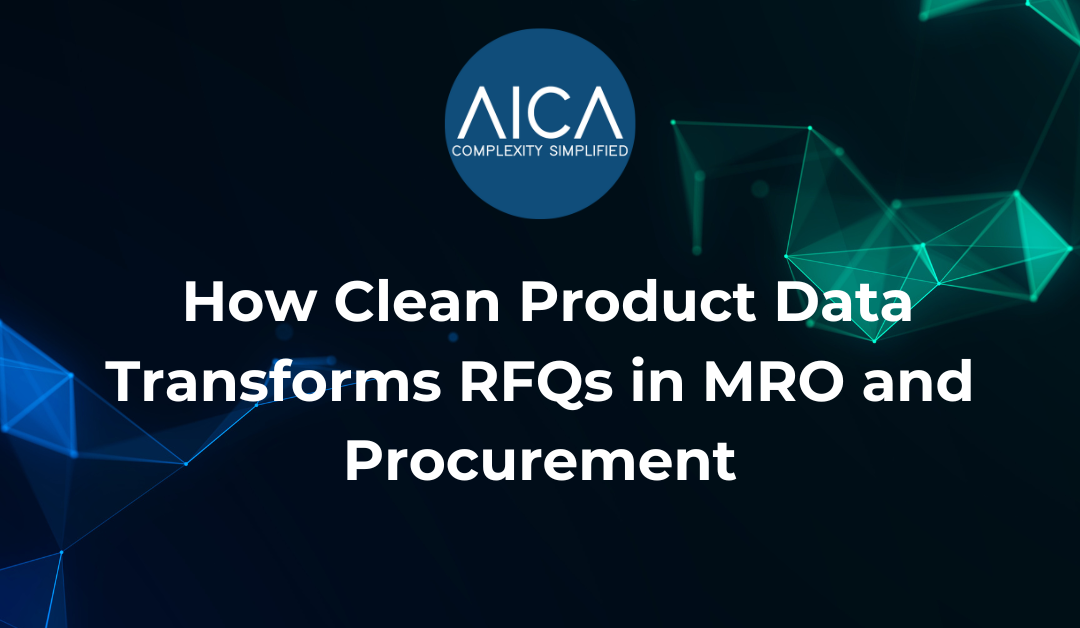Every organisation wants faster, more accurate sourcing. Yet when Requests for Quotation (RFQs) are built on inconsistent or incomplete product data, the result is confusion, delays, and wasted cost. Clean data doesn’t just improve RFQs, it transforms them into a competitive advantage.
Here’s how accurate, enriched, and classified product data directly impacts the RFQ process in MRO, procurement, and supply chain management.
1. More Accurate Supplier Matching
When product and service data is standardised and complete, with manufacturer, part number, specifications, and UNSPSC or GS1 classification, suppliers can immediately recognise what is being requested. Without this level of clarity, suppliers are often forced to make assumptions or disregard RFQs entirely if they can’t map the request to their catalogues.
Accurate classification ensures that suppliers are bidding on the right items the first time. It also expands the pool of potential suppliers, since they can quickly align requests with their existing product ranges. For procurement teams, this means fewer mismatches, fewer wasted bids, and a stronger set of suppliers competing for business.
2. Faster RFQ Cycles
One of the most common bottlenecks in sourcing is clarification. When descriptions are vague or attributes are missing, suppliers send back questions, “What size flange do you mean?” or “Which manufacturer is this part from?”.
Each round of clarification adds days, or even weeks, to the process.
With clean, structured data, ambiguity is removed from the start. Suppliers immediately understand what is being requested, which reduces back-and-forth communication and speeds up response times. Procurement teams can issue RFQs with confidence, knowing suppliers will be able to respond quickly and accurately.
This shift alone can cut cycle times dramatically, accelerating sourcing decisions and improving business agility.
3. Better Quality Quotes
When product data is unstructured, suppliers interpret requests differently. One supplier may assume stainless steel, while another assumes carbon steel, and a third offers a mixed bundle that doesn’t fully align. The result is a set of quotes that are difficult, if not impossible, to compare fairly.
Clean data ensures that all suppliers are quoting against the same baseline attributes. This creates true apples-to-apples comparisons, resulting in better competition and more accurate pricing. It also reduces the risk of hidden costs creeping in later due to incorrect assumptions.
By ensuring suppliers have the same level of detail, procurement teams can negotiate more effectively and make decisions that deliver the best value.
4. Improved Spend Visibility
The benefits of clean data don’t end with issuing the RFQ, they also extend into the analysis of results. When supplier responses are tied to well-structured product data, procurement teams can consolidate outcomes into meaningful insights.
Clean RFQ data enables reporting on which suppliers consistently deliver the best value, total spend per category, and opportunities for supplier consolidation. This prevents procurement fragmentation, such as buying the same fastener or valve from multiple vendors at varying prices. Instead, procurement can leverage volume for cost savings and align sourcing strategies with business goals.
5. Lower Procurement Costs
Industry benchmarks show that with clean MRO data, organisations can cut sourcing costs by 8–15% through better negotiations, bulk buying, and duplicate elimination. These savings are possible because clean data eliminates redundancy and highlights consolidation opportunities.
For example, if “valve, ball, 2-inch, stainless” is standardised across systems, procurement avoids sending duplicate RFQs for what is essentially the same item.
With one clear record, sourcing can be consolidated, volumes can be negotiated, and cost savings can be realised immediately. In large-scale operations, these savings accumulate quickly into millions of dollars.
6. Stronger Supplier Relationships
Suppliers prefer working with organisations that issue clear, structured RFQs. When they don’t need to spend hours clarifying vague requests, they can focus on providing accurate, competitive bids. This builds trust and credibility, encouraging suppliers to prioritise responses from your organisation over less structured competitors.
Over time, this consistency strengthens supplier relationships. Suppliers know they won’t waste time on unclear requests, which reduces frustration and fosters long-term collaboration. Clean data isn’t just a procurement efficiency tool; it’s also a relationship-building strategy that keeps suppliers engaged and responsive.
7. Reduced Risk
An inaccurate RFQ can result in the wrong item being sourced, causing delays, re-quoting, and in critical environments like mining or oil and gas, costly maintenance downtime.
Clean data reduces these risks by ensuring that every RFQ is issued with the right specifications, attributes, and classifications. This “first-time-right” approach lowers the chance of errors, keeps operations running smoothly, and protects businesses from the financial and reputational costs of procurement mistakes.
How AICA Helps
At AICA, we specialise in the cleansing, enrichment, and classification of product and service data using our Agentic AI. Unlike generic tools, our models are specifically trained on MRO data, which means they understand the complexity and terminology of spare parts, materials, and equipment records.
We deliver results that are:
- Quicker – Bulk classification through our API processes millions of records in weeks rather than months.
- More Accurate – With over 90% accuracy, our classifications are production-ready and supported by confidence scores for transparency.
- Cost-Effective – AI-automation reduces the need for heavy manual effort, cutting classification costs significantly.
- Domain-Specific – MRO-trained algorithms ensure results are relevant, consistent, and precise.
By combining these strengths, we help organisations build RFQs on a foundation of clean, structured, and reliable data. This translates into faster sourcing cycles, stronger supplier competition, reduced procurement costs, and measurable business outcomes.
Clean data doesn’t just make RFQs easier; it makes them more effective, efficient, and strategic.
Visit our website to learn how AICA can help you transform RFQs with clean product data.
Copyright Reserved © AICA Data International Ltd 2025

